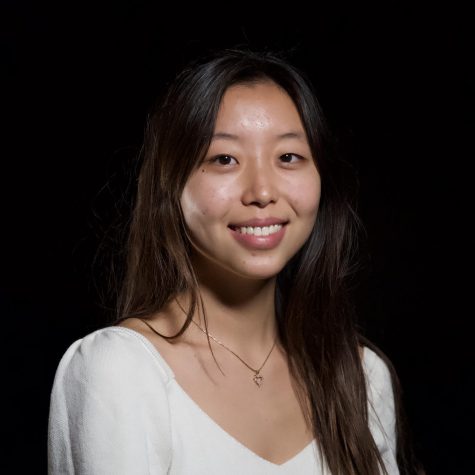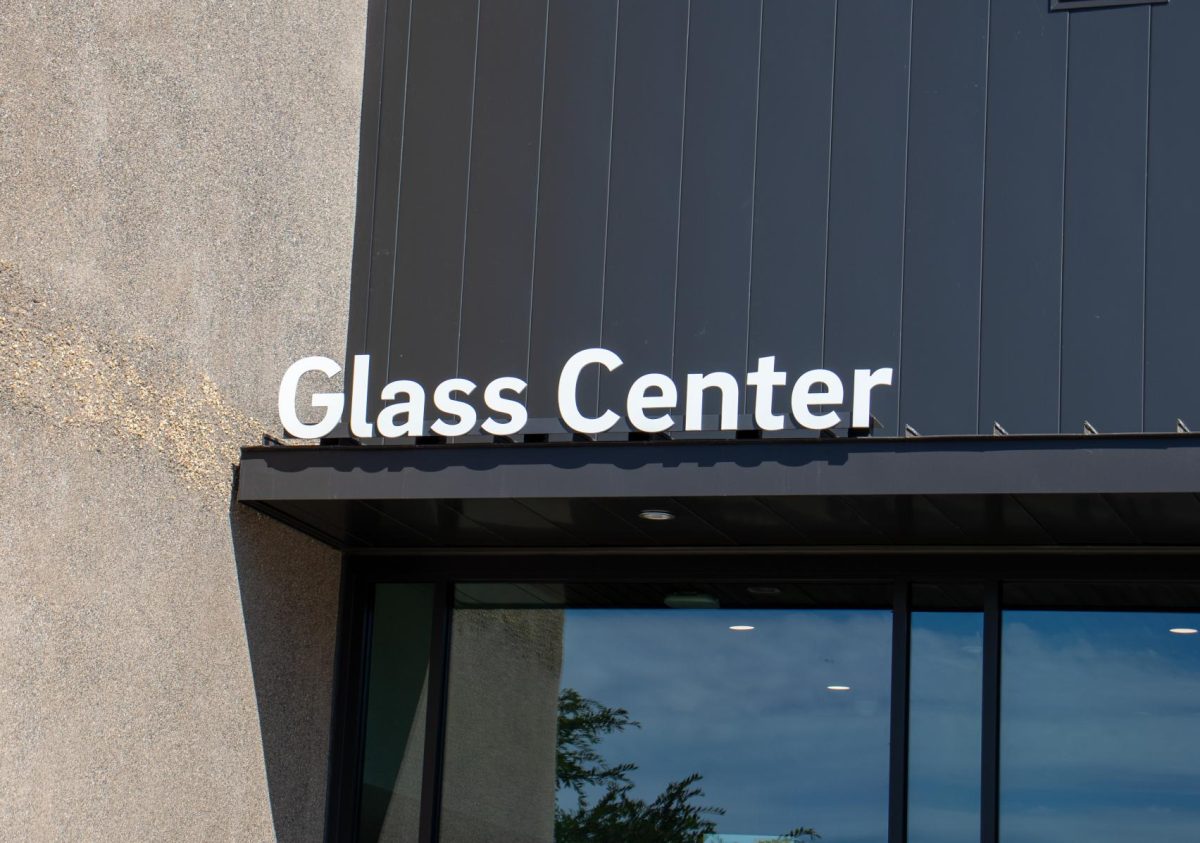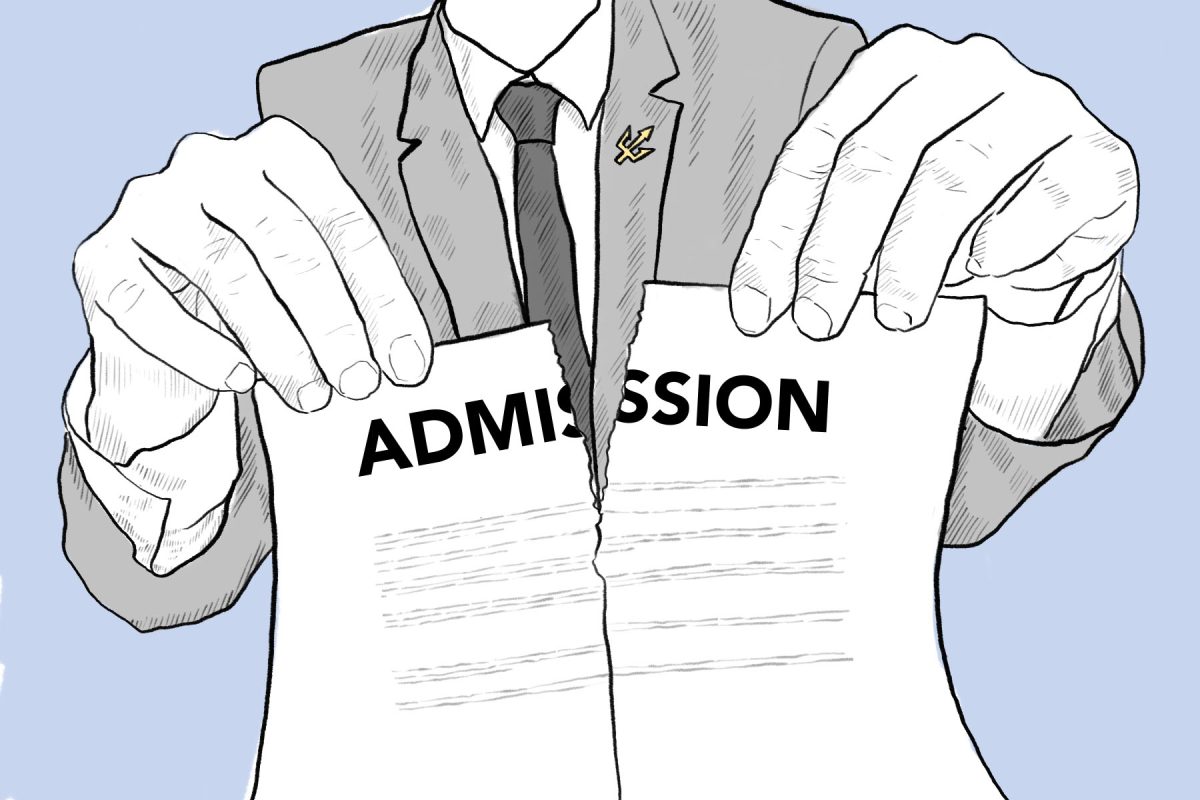Marshall College is known for its community-oriented activities and programs and many of them focus on student relations as well.
Near the end of Spring Quarter, a Senior Night celebration took place for graduating Thurgood Marshall College students through a Student Affairs Dean’s Interns Program event, a staff mentoring peer program. It was a very cold day, but the students played bingo and ate hot pizza with one another.
Behind the scenes, there was much organizing, pondering on funding, and setting up. The heart of how to be a scholar and citizen is embedded in these activities, with Marshall College always having a final say in all events.
Alicia Miller is one of the backbones of these events, as she works specifically with student involvement. She is a fan of student organizations, working alongside transfer and commuter students. Perhaps one could see this love for event-planning and student camaraderie when they spot her, just a few feet away from students and engaged in the same activities as them on the grass.
Miller applied to Student Affairs for the Dean’s Intern Program in October of last year. Miller was a temporary employee back in January 2020 for a few months. Around that time, she was in the position she is in now. However, after she applied again last year in the fall, it became official.
Marshall College’s programs are dedicated to the college’s motto of being “a scholar and citizen,” but there are two that are especially oriented toward building student-to-student relations. The Marshall College Transfer Peer Mentor Program allows incoming transfer students the opportunity to receive mentoring from transfer students (of more than two years’ worth of experience) as well as obtain peer support.
The Each One Reach One program offers these similar resources but to first-year students — though transfer students may join it if they wish.
Campus tours, for one, are for campus acclimation and they are ideal for both transfer students and first-year students. But it is important to note that transfer students may better understand resources like campus tours since they come from other institutions. The Marshall College Transfer Peer Mentor Program simply goes the extra mile by helping them locate and access them.
Miller, the Coordinator of Student Activities for Thurgood Marshall College, is positive and warm. She oversees these two student programs that are a part of the dean’s programs, utilizing similar marketing strategies for both during Zoom meetings with student members (that sometimes takes place directly in the Marshall College Administration building).
She treats people as if they’re already friends, offering a sense of comfort. On the opposite side, she accepts how things don’t work out, too. With a shrug, she dubs them learning lessons.
Events are based on the number of those in attendance and what members wish to see. For instance, because students love food and networking, Miller has focused on picnics and prompted discussions.
“For next year, […we] want to take people to the zoo, with mentees and mentors. Chat about favorite animals. We want to provide events that are fun … but also intentional,” Miller said.
In the Each One Reach One program for first-year students, some of the events they had ranged from a networking luncheon to a nearby UTC shopping trip. The program also held a picnic, a small scavenger hunt, and notebook decorating.
This upcoming quarter, they wish to do a campus crawl (such as walking through restaurants and class buildings) guided by resources they can share amongst each other as a team.
There is even funding available for peers to have lunch together on their own time on campus, with prompts such as icebreakers and check-ins. After all, the quarter can get incredibly busy.
Additionally, the Dean’s intern program is composed of coordinated positions and these are vital to Miller, who doesn’t take full credit for Marshall programming endeavors. The dean’s interns (who are not mentees and mentors) are typically only coordinators; others are just a part of the peer mentor program. The coordinators do program planning, recruitment and building programs.
Miller said that she loves seeing students coming into themselves and growing into these coordinator roles. While team spirit and a desire to aid other students with their identity is crucial, she states that they should also want to have fun and wish to benefit themselves as well. For instance, some students have roles as transfer program coordinator and Dean’s intern. There is a sense of generosity in that those who apply aren’t even always transfer students.
Tresa Varghese is a coordinator of the Transfer Peer Mentoring Program and a mentor as well.
“As a student coordinator, I am more able to empathize with the transfer students. I understand their schedules and their curiosity about the new campus. I am also easier to talk to than staff so I am more intimately aware of their concerns about navigating their new environment. They not only build lasting bonds with each other but also with me. I have made lasting friendships due to my role as TPMP coordinator,” she said.
There have been some challenges so far. Virtual programming, due to COVID, has had low attendance; in-person activities certainly engage the most people. On Valentine’s Day, less than a handful of students showed up for a Jeopardy event that involved prizes at the end.
“My … general concern for the entire world is just COVID,” Miller said. “[It’s] in and out so often. [It] impacts both programs through personalization and [the] programming aspect. If we’re told we can’t do programming in person, then we can’t do programming in person.”
Still a concern might eventually be actual recruitment. Reaching as many students as possible in person is a priority as transfer students can struggle with “culture shock” and relearning or resocializing in ways they haven’t before.
For many transfer students, Spring Quarter was their first or second in-person quarter since their start as a student at UC San Diego. For them, the process can be very isolating in that they’re starting off on different footing than their other peers.
Moreover, the transfer program normally catches them in their last year. Miller wishes to nurture a space for transfer students to build identity by being friendly and clearly advertising resources. She ultimately emphasizes the importance of connections and sharing these resources.
“The transition [from COVID] was good and bad,” Miller said. “Better and worse in some ways for transfer students. For some … it was a much more convenient way to learn about resources and connect with folks and professional staff. For some, it was intimidating as they had to [reach] out virtually.”
Either way, Miller asserts that they have a plan to flip-flop to bring to students what they want.
“We encourage them to figure out a virtual platform to talk. Like Discord. Cell phones too,” Miller said. “How many students like to email? We have events specifically for mentor mentee pairs to connect.”
This process could be easier with the incoming Welcome Week and more in-person events.
“I might be a bit biased but I think these two programs are incredible,” Miller said. “They fit two different populations. If someone wasn’t a transfer and they joined, it might not be a problem.”
Also, fourth-year transfer students are considered “second year.” They’re caught as mentees and then mentors in their senior year. They have a better grip on the class environment, socializing, knowing where connections may benefit students, and more. They can help newer transfers reflect.
“[There’s] truly, no disappointment,” Miller said. “Any time we put on a program, it’s always been for the students. We’ve always benefited at least one student. I want to make sure that we’re doing something for every student that we possibly can.”
The main takeaway after events is feeling like one is a part of the community and having a connection they can always come back to.
When asked if they’re Marshall-exclusive, Miller said that “[they] will never turn you away. If anything, [they] will embrace you a little more.”
When students feel heard, their voices may only amplify over time. Miller has a belief that students can only benefit from turning to avenues that provide them resources to be more well-rounded.
“We encourage all of our students to get truly involved,” she said. “Put yourself out there. Have fun. Make friends. Create that community you want to be around you .. while balancing not just your academics but your involvement [with] social life. Go to as many events as possible. Make friends with everyone. Listen to everyone’s stories.”
Image Courtesy by Fauxels
















idadalton • Oct 3, 2022 at 4:03 am
Don’t deposit more money at maneki than you can afford to lose is a wise maxim to follow while playing online poker or any other kind of gaming.
Norma B. Billings • Sep 26, 2022 at 4:10 am
The Mentor program at Thurgood Marshall College is one of the most important programs on campus. The program helps students build their resumes and get real-world experience, while also providing a social outlet for students to meet people from all walks of life. It encourages learning about https://domeanessay.com/edubirdie-com-personal-help-for-every-student-demand/ and other modern tools. I have had the opportunity to be a mentor for many different students. I have met some fantastic people, some who have become great friends as well as mentors. I have also had the opportunity to meet many more students who are interested in becoming mentors themselves.
basket random • Sep 25, 2022 at 1:14 pm
These programs allow students to compete with each other. These programs are very useful.
basketballstarsgame • Sep 18, 2022 at 4:25 am
I’m glad you discovered it. It’s what I needed..
northell • Sep 15, 2022 at 11:01 pm
Campus tours, for instance are a great way to get used to the campus environment and are beneficial for both freshmen and transfer students. It is vital to remember that transfer students are more likely to comprehend resources like campus tours since they are from other universities. Marshall College’s student mentorship program is a way to go the extra mile to assist students find and use these resources.
In the meantime, if you don’t wish to become a transfer student and are able to become a programmers is a good thing too. It’s a well-known and well-paying profession. Highly recommended if you’re fluent in English to consider a career in the field of development.
Bloxorz • Sep 13, 2022 at 6:35 pm
The post has a great content. Nice to see it here.
LOL Beans • Sep 13, 2022 at 8:13 am
Reading the English article is a good way to practice my reading skill.
Taylordle Game • Sep 9, 2022 at 10:44 am
This is such an exciting news! We are proud of all the new advances in technology which strongly emphasize the use of educational purpose in our society
viper.com • Aug 28, 2022 at 4:16 am
How many times have you heard one of the following aphorism examples.
Now that we’ve covered the aphorism definition, are you ready for more examples.
The meaning.
George Washington is known for his wise sayings.
This is especially true if the excuse is a lie.
Oftentimes, it makes sense to delegate tasks.
It originated from Lady Mary Montgomerie Currie’s poem Tout vient a qui sait attendre.
And get this.
Practice what you preach.
The early bird gets the worm.
Examples of Aphorisms for Success
Moris7l*all If you can do something, then you need to do it for the good of others.
This aphorism is short and sweet, but it teaches us a valuable truth.
Finally, Actions speak louder than words is another classic example.
’Ah, all things come to those who wait,’
Aphorisms can act as a guideline to help narrow the focus of your work.
good essay writer • Aug 26, 2022 at 1:04 pm
Almost everyone is aware of communication tools that are used for making contact to enhance your conversations. Because of this growing technology life become quite easier as well as fast with time.
will james • Aug 26, 2022 at 1:04 pm
hey good one
Finn • Aug 25, 2022 at 7:37 pm
Marshall College is known for its community-oriented activities and programs and many of them focus on student relations as well.
https://bit.ly/3dT94GH